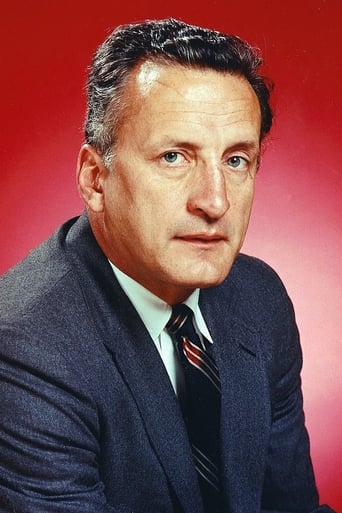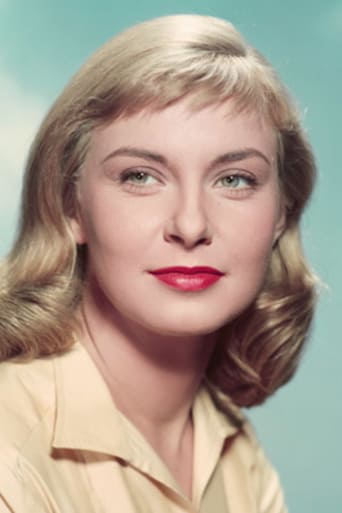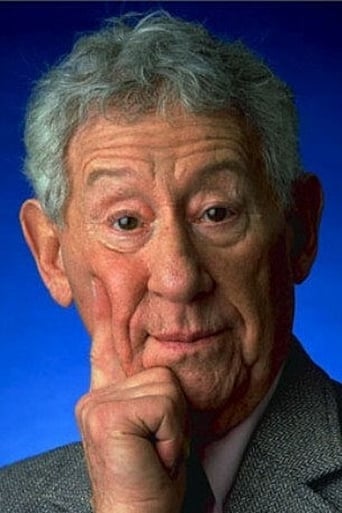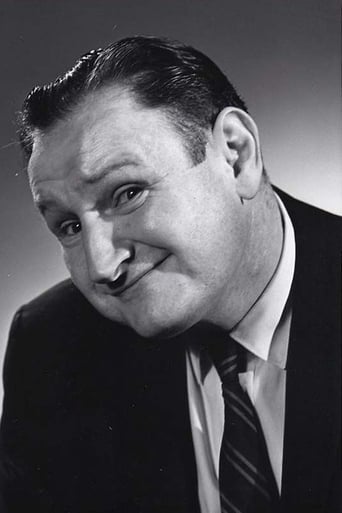Lollivan
It's the kind of movie you'll want to see a second time with someone who hasn't seen it yet, to remember what it was like to watch it for the first time.
Roman Sampson
One of the most extraordinary films you will see this year. Take that as you want.
Fleur
Actress is magnificent and exudes a hypnotic screen presence in this affecting drama.
Bowserb46
George C. Scott demonstrates once again that he is not a "type". Sherlock Holmes (Justin Playfair--what a great name), Buck Turgidson, Patton. Unlike some other big name actors, Scott IS the character he portrays, while other overrated actors take roles where they play themselves, and consequently, they always ARE themselves.Joanne Woodward, in my opinion, is as good here as any role she's played. I'd rate this and "The Effect of Gamma Rays on Man-in-the-Moon Marigolds", as her best acting performances. Yes, others are more famous, but in those others, she's often playing herself or is a bit over acting.This movie is full of familiar faces whose names we don't know. The ugly New York locations are great, too. All in all, it's worth 98 minutes of your viewing time!
hchickpea
I was a projectionist once, and I showed this film when it had its theatrical release. One aspect of being a projectionist back then was that you got to see certain parts of the films over and over, to the point that you not only could relate scenes and repeat lines, but you began to understand the films in a deeper way than the audiences.The previous reviews miss enough that I feel compelled to write a review of the film. First, the same author wrote "Lion In Winter," so it is pretty obvious he knew the craft. Second, this started as a London stage play, and according to the admittedly loopy Wikipedia, he didn't like the production and stopped further attempts at mounting the play.Once you take the concept that it is a stage play adapted for film, some of the oddities of this production become more apparent. Much like the concept expressed in "Shakespeare in Love," where everyone expects and looks forward to the dog in a play, movie audiences expect a romantic relationship and a happy ending where good triumphs over evil, the Hayes code is satisfied, and insipid movies are safe for kids to watch.The intent of the original work is darker than that, but in order to perceive that you have to look underneath the surface, much as Holmes would do.Start with the title "They Might Be Giants." Yes, it is an homage to Cervantes, but it is a double-entendre as well. In ignoring the dross of everyday life and focusing on existential topics to the point that the world calls them crazy, the "mentally ill" just might be the giants of humanity, exploring the boundaries of who we are as humans and good and evil. Certainly the Justin (justice) Playfair (play fair) character turning into a Holmsian sleuth represents that. The couple who shut themselves off from humanity for years and were very happy is another exploration of the concepts under consideration. It is only when Holmes goes looking for evil in their world that it suddenly appears.Who is to say that a person who believes himself to be a silent film star isn't, in some small measure, that person? The entire concept of empathy, as well as the concept of method acting, both require "getting into the head" of the character. Do we not all have a bit of Scarlett Pimpernel in us somewhere? Is expressing that so bad that we need to relegate our lives to being nebbish librarians forever in our existence? On the subject of the varying versions - Many years ago, I worked in a couple of television stations. The movies we showed came in on 16mm film and one of my jobs was to cut the films to fit the time slot allotted. I learned never to trust a televised version of a film as being accurate to the intention of the director. Networks modify film as well, and in some cases they have access to ADD footage as well as clip it.*Major spoiler here* - The "enigmatic" scene at the end is only enigmatic if you are blind to the modern version of the Hayes code and the inevitable studio interventions which bow to the low common denominators of "How can we maximize the money this makes?" and "Will it upset the audience?" Start with the supermarket scene and descent into "Mad Mad Mad Mad World" slapstick. The duality is that the author did want to show how, when confronted, the "establishment" is a group of enforcers of the status quo, some dressed in enforcer (police) uniforms, and some masquerading as those who would help you become sane, while wielding rubber hoses if you don't follow their instruction. At the same time, the studio wanted a feel good slapstick to lighten up a film with an underlying dark theme. Ergo: chaos in a market, where the materialism of the enforcers of status-quo becomes their temptation and undoing. The most powerful figure in the scene is reduced to saying "My wife will kill me if I don't take advantage of this bargain." The end scene is the most dark of all. Once the reality of the world Holmes has been fighting is shown to be a farce, he has nowhere to go. Death is the inevitable conclusion. The tunnel in Central Park is again double entendre and metaphorical. Tunnel - the passage into the unknown. Tunnel - the accepting of a confined world where there is no escape from whatever comes towards you. There are others that I'll let you deduce for yourself. However... the tunnel was ALSO a metaphor for a RAILROAD tunnel. The horse being heard is a clue to an IRON horse, which is borne out by the comment and visual that they will be in the light (train headlight - also metaphor for truth/God/etc.) and be found close together. He has convinced the analyst to trust him right into death.There is no way that the film company and distributor would allow a scene of Geo. C. Scott and Joanne Woodward standing in front of a railroad (or more likely subway) tunnel, and being run down by a train. All feel-good aspects of the film (and chances of repeat customers) would be lost. What surprises me is how few people "get" the ending and theme of the film.
readinglips
Just because there are big names in front of the camera (Joanne Woodward, George C. Scott) and big names behind it (Anthony Harvey, directing his first film since LION IN WINTER; written by James Goldman, author of LION IN WINTER; exec produced by Paul Newman/John Foreman Co.) does not make this film any less of an amateurish effort. If it had been made as an indie production, critics and audiences would treat it with derision. As it is, audiences must have laughed it off the screen when it first came out.The actors do their best and the production values (photography, sets, etc.) are fine. But as a film – or even as a story – there's nothing there. Cervantes tilted at windmills because "they might be giants." He was an idealist and also a looney. So is Justin Playfair (the George C. Scott character), who thinks he is Sherlock Holmes. There are some scenes of utter embarrassment: Ms. Woodward preparing for dinner; the parade of people walking through midtown New York in the dark of night; and especially the ending (in a Pathmark Supermarket), among others, that leave you asking, "WHAT were they thinking?" In the end, we hear nothing except that idealism should be contagious. And that parable has been told many times before and in far more interesting (and entertaining) ways.
blanche-2
"They Might Be Giants" stars George C. Scott and Joanne Woodward, and these two wonderful actors benefit from a first-class script by James Goldman, based on his play, and great direction by Anthony Harvey.Scott plays Justin Playfair, a man so overwhelmed by the death of his wife Lucy that he retreats into a world of illusion where he's Sherlock Holmes, cape and all, on a case against the vicious Moriarity. His brother needs to have him committed, mainly because he has people after him and needs control of his brother's money, so he takes him to a sanitarium to be evaluated. However, the doctor, Mildred Watson (Woodward) refuses to make a decision until she has examined the patient and spent time with him. To Playfair, of course, she's "Watson" to his Holmes. She ends up accompanying him through New York City as he tries to decipher clues that will lead him to Moriarity. She becomes fascinated with him and his brilliant deductions, many of which are about her.This film is a true gem that asks who's really crazy as it champions the unsung heroes of this world. Filled with metaphors, the ending is ambiguous and a point for much discussion on the message board for the film.It's wonderful to see the New York locations, but the real treat for this writer was that a part of the story takes place in the Greenwich Village library across the street from where I lived for so many years. Having been in the library many times, it actually looked to me as if they did use the real basement to film, or else replicated it elsewhere, because it did look exact. It's there also that we meet Playfair's friend of 30 years, played by Jack Gilford.All the performances are excellent, including that of Rue McClanahan as Playfair's sister-in-law who just loves his Holmes act and Gilford, who has always wanted to be the Scarlet Pimpernel. Woodward is perfect as a psychiatrist with low self esteem and not much of a life. Scott is positively brilliant as Playfair and his alter ego, the sharp and determined Holmes.This is a movie that takes you into another world, a state of mind that at times seems preferable to the one that we're often stuck with. You'll want to see it again, if only to pick up on all the nuances.






